Vegan Doughnuts Made with Yeast (ORIGINAL Vegan Donut Recipe)
Vegan doughnuts are easy to make! After perfecting regular doughnuts, the recipe can now be made vegan! No one will believe they’re truly egg free and dairy free (this is an original recipe)!
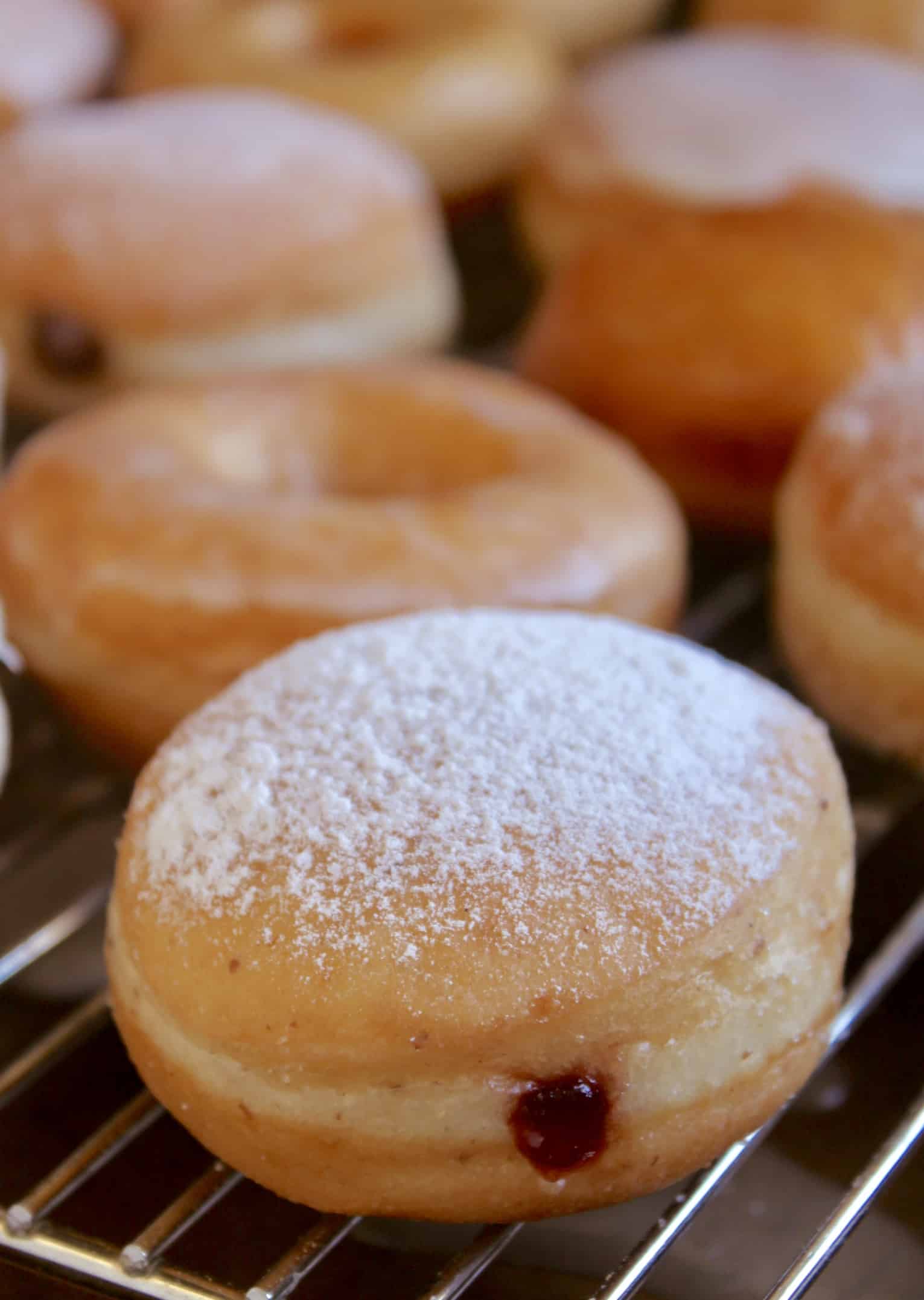
I never thought I’d post a recipe for vegan doughnuts, but I also never would have believed they’d come out so perfectly!
I don’t know how much you know about my site and recipes, but my top performing post is my perfect yeast doughnuts recipe. (We’ll see how long it lasts since my custard peach pie recipe has been coming on strong for 6 months, now.)
As an Amazon Associate I earn from qualifying purchases.
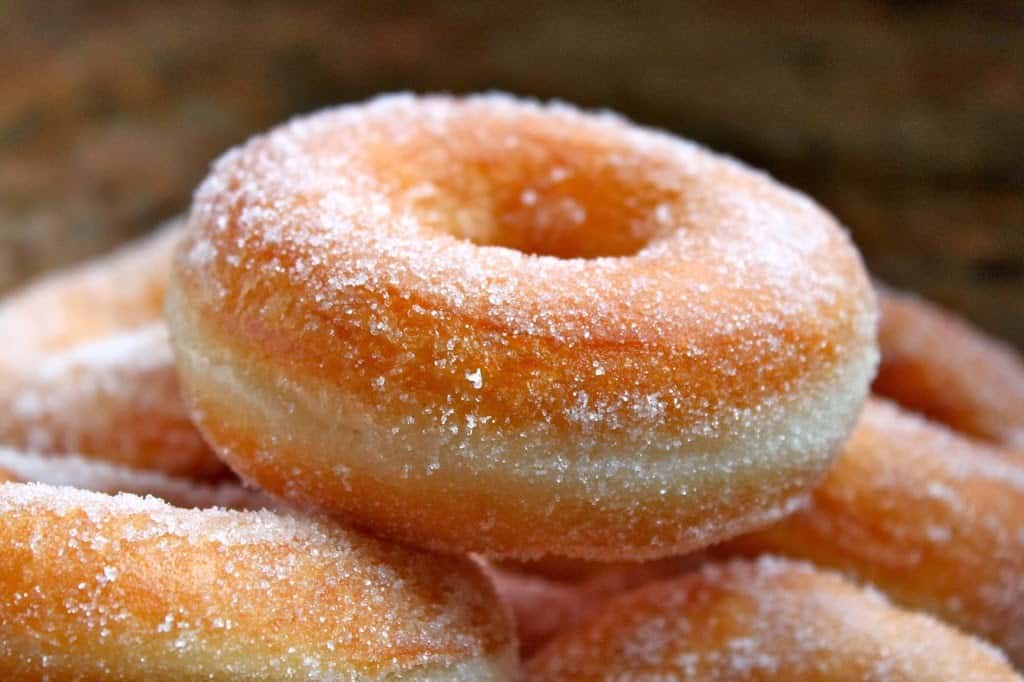
I cannot tell you how many times the photo above has been stolen online. In fact, I flew to Scotland a few years ago and discovered that someone was using it on a sandwich board to promote their business (without as much as asking my permission)!

Anyway, the reason I’m telling you this is because this doughnut recipe is popular for a reason: the doughnuts really just turn out to be perfect! I’ve had rave reviews from all over the world (you can read the comments here). It’s not my recipe, but one I adapted from a bread baking book, so I’m not the one to take credit for the recipe.
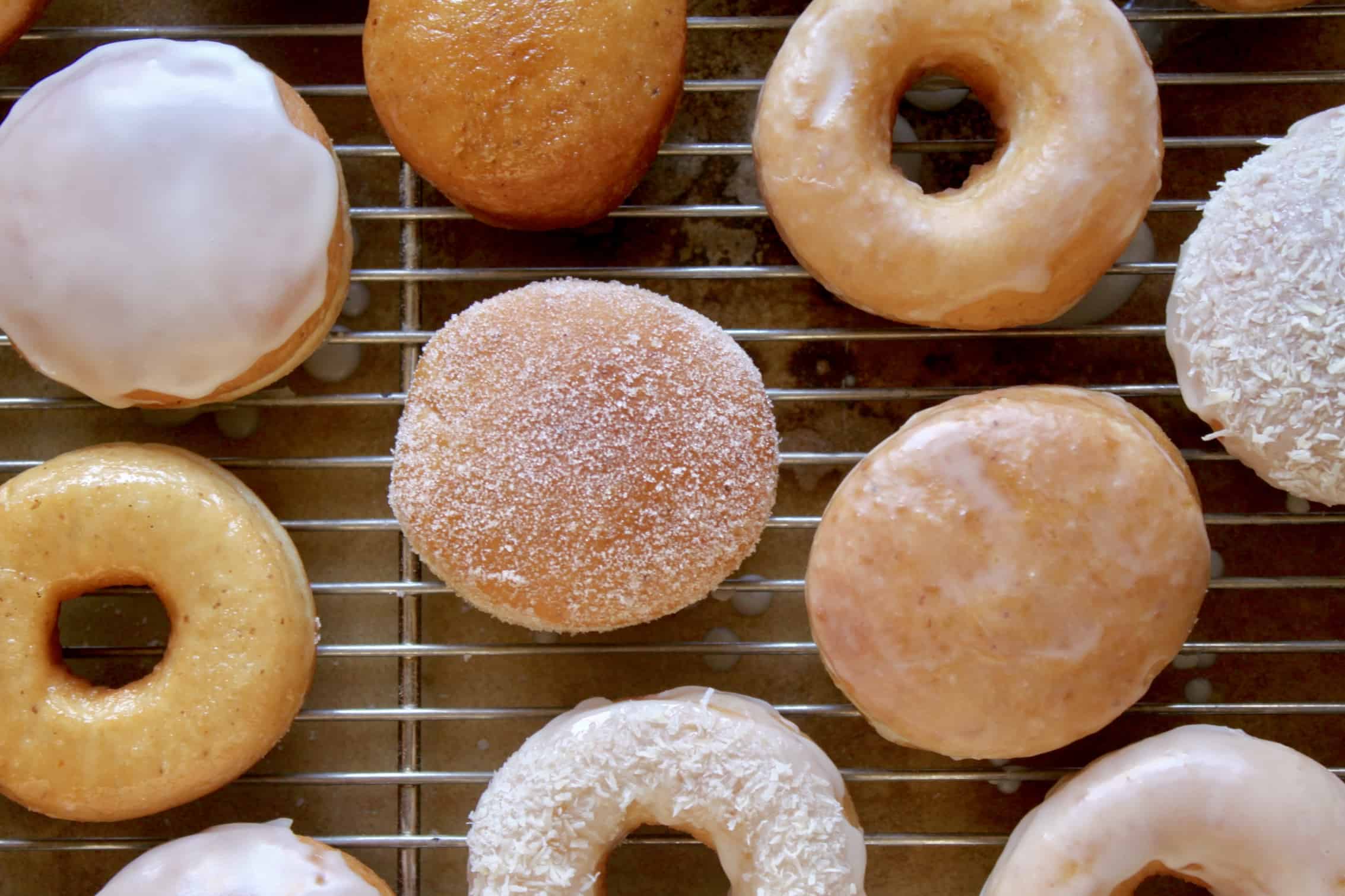
I also can’t take credit for “veganizing” the recipe because it was comments left from two of my readers, Jen and Nicole, telling me they’d made my perfect yeast donuts in vegan form and they were amazed at the results. Thank you, ladies!
Just want the glaze recipe? Check out my glazed donuts.
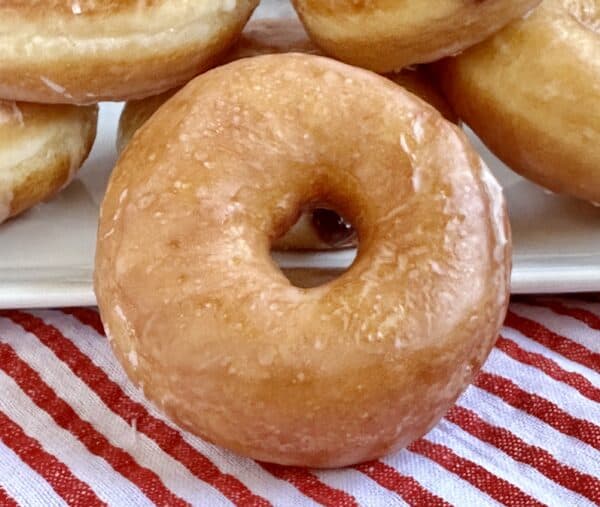
Unfortunately, you’ll find other similar recipes published online and often there is NO CREDIT to where the recipe came from. When you see a recipe online, ask yourself: where is the credit to the source of the recipe, even if it’s an inspiration. So how did I create this perfect vegan donut recipe?
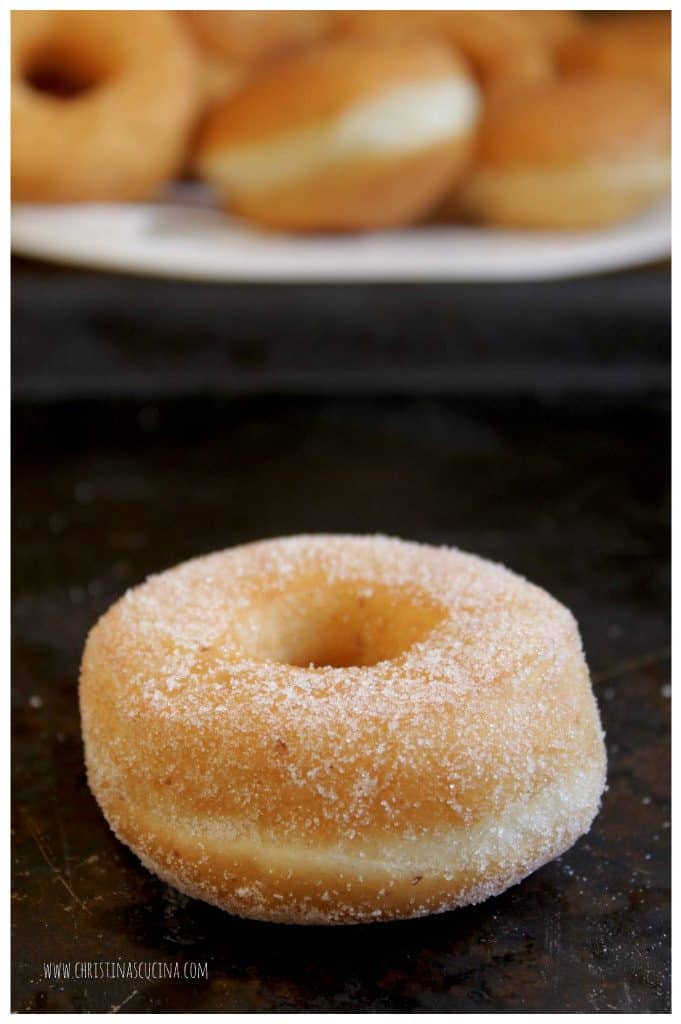
Another reader named Laura told me her children were allergic to eggs and dairy, so I’ve had it in the back of my mind to try and make vegan doughnuts for quite some time.
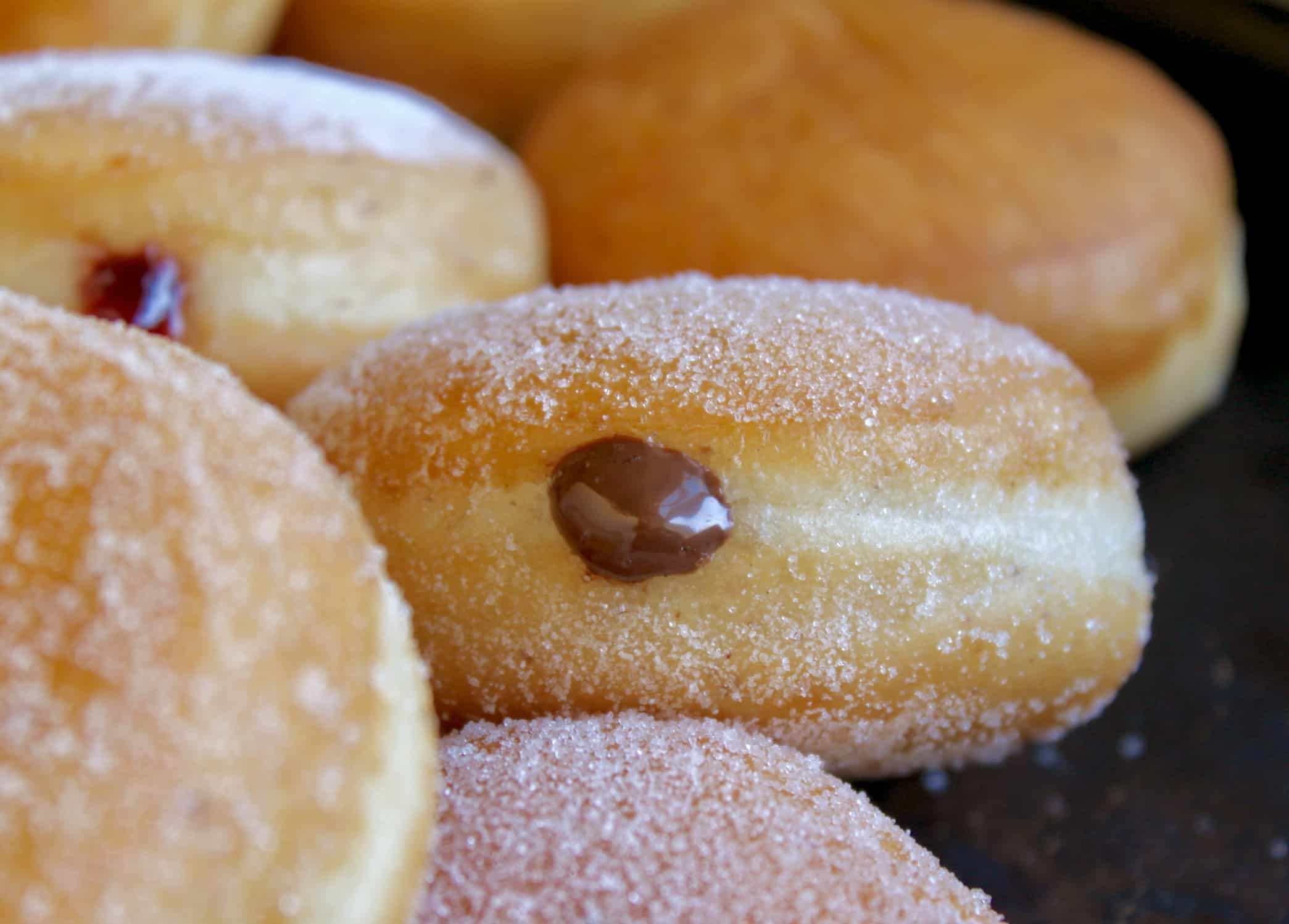
I’ve made these absolutely perfect vegan donuts twice now, and they are incredible. My dad raved about them saying he thinks they’re even better than the original! If you knew my dad, you’d realize that this means the doughnuts are crazy good! I would also never share a vegan recipe if it meant that the flavor/taste was compromised by having to substitute ingredients.
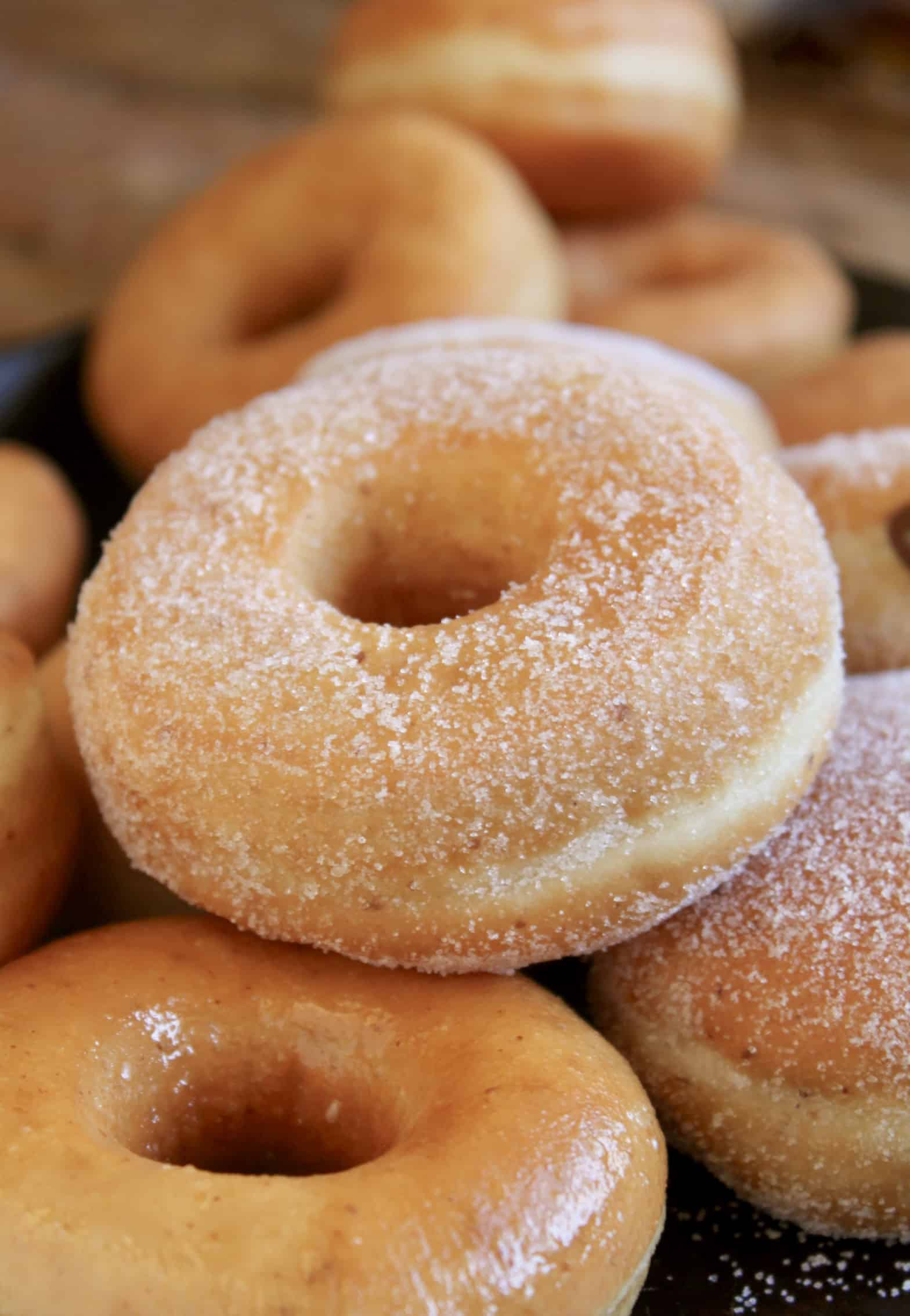
There’s a printable recipe below. If you make them, please let me know what you think!
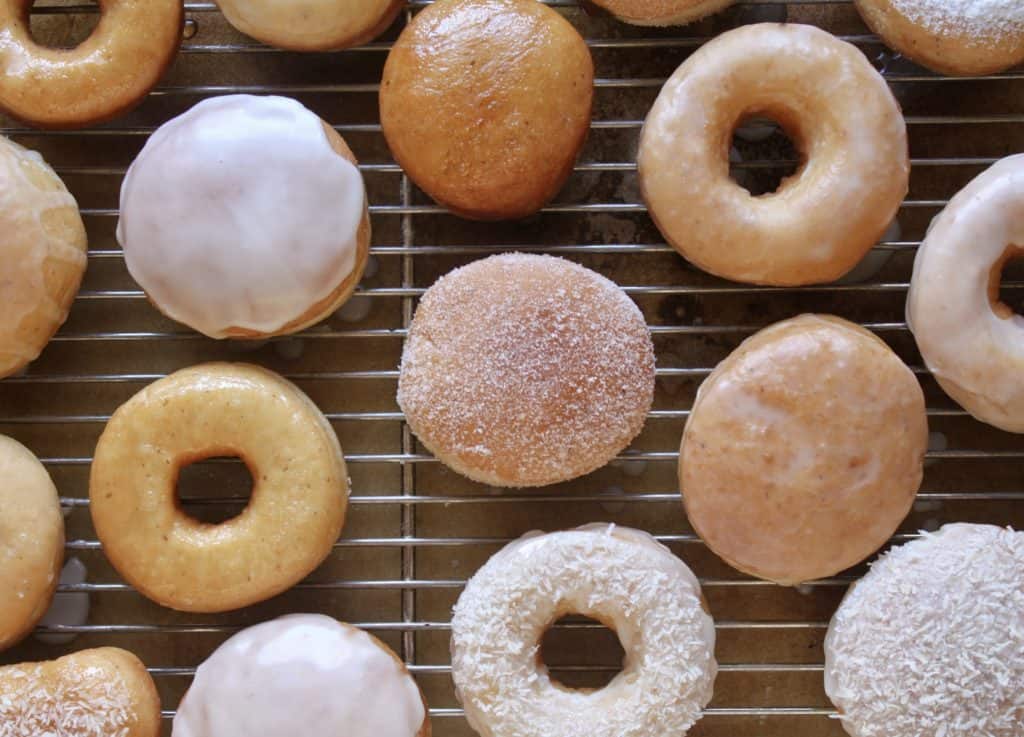
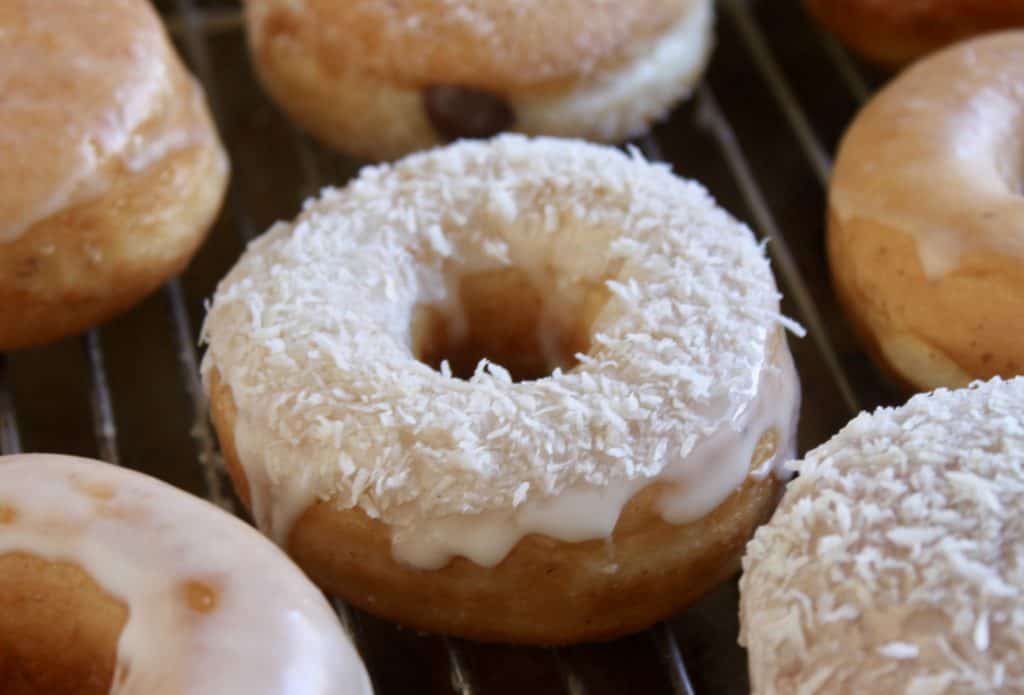
Perfect Vegan Doughnuts
Adapted from this recipe for Perfect Yeast Doughnuts.
FULL PRINTABLE RECIPE BELOW
Ingredients
- aquafaba (chickpea liquid)
- flaxseed
- coconut milk
- coconut oil
- flour
- sugar
- salt
- yeast
- oil for frying
Step by Step Directions
measurements are critical in this recipe, so a scale is necessary. (This is why there are no cup measurements-please do not ask for them.) The ONLY way to obtain the correct amount of flour is by weighing it.
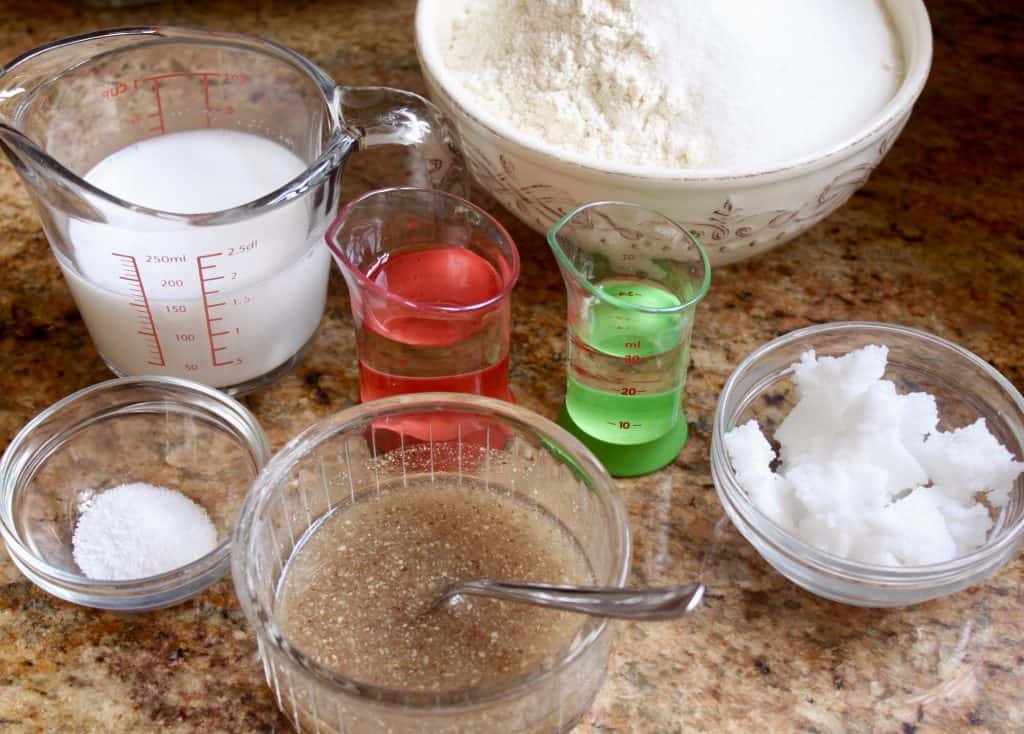
-
Make the vegan doughnut dough in a bread machine (or by hand).
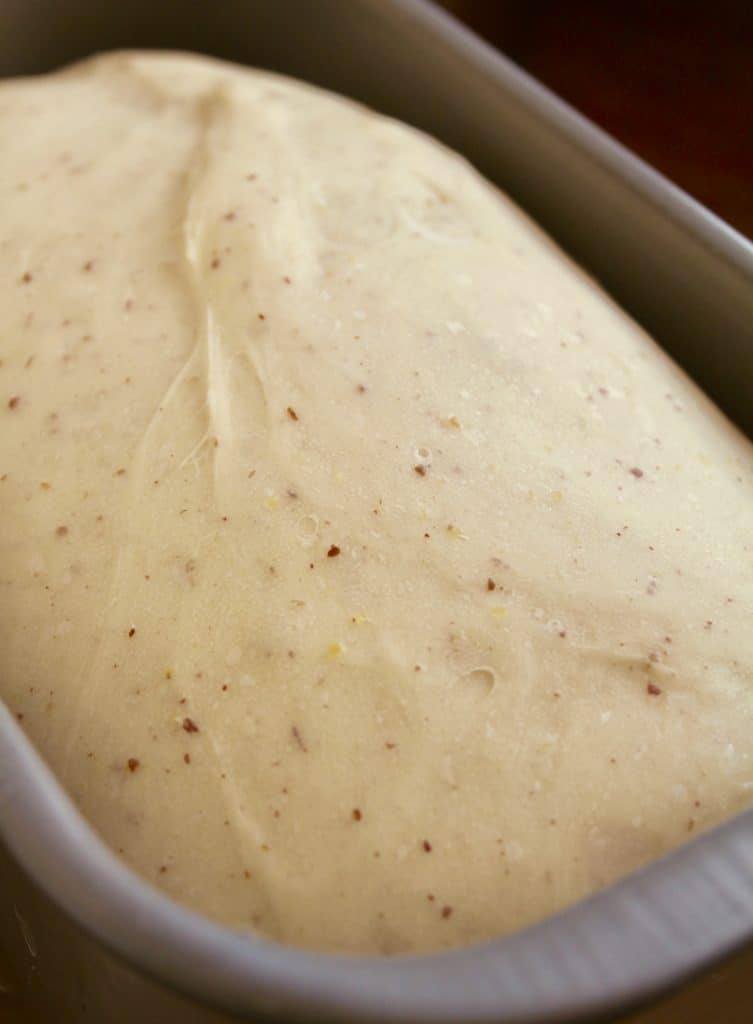
-
Knead the dough when doubled, roll out and cut doughnuts.
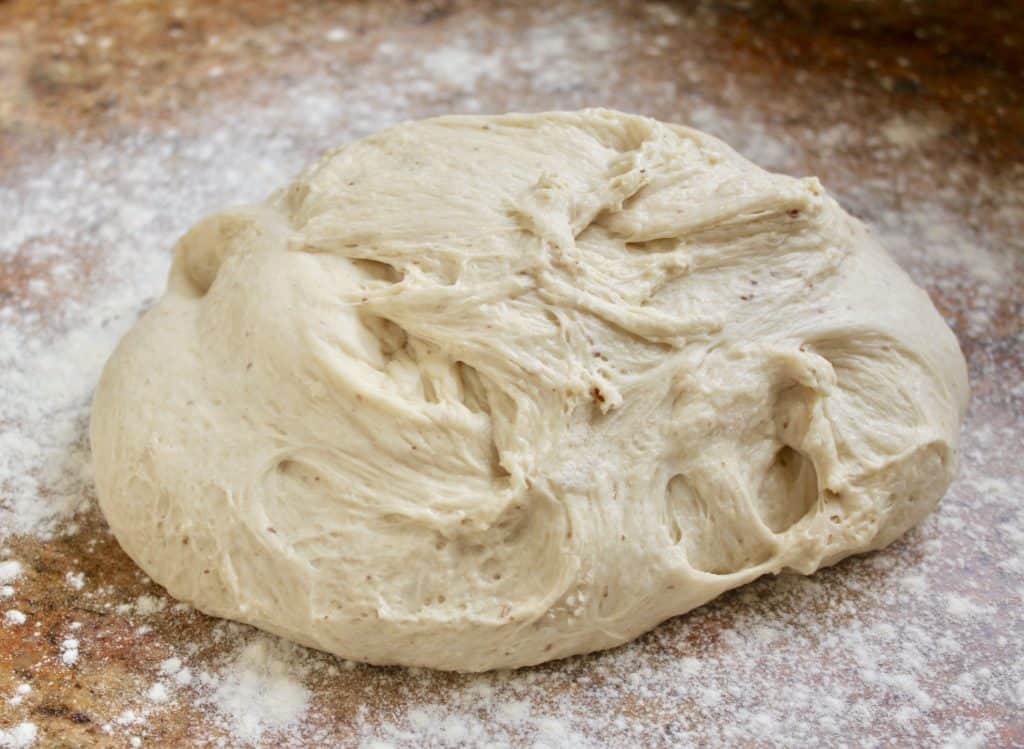
This is the link to the doughnut cutter in the photo below.
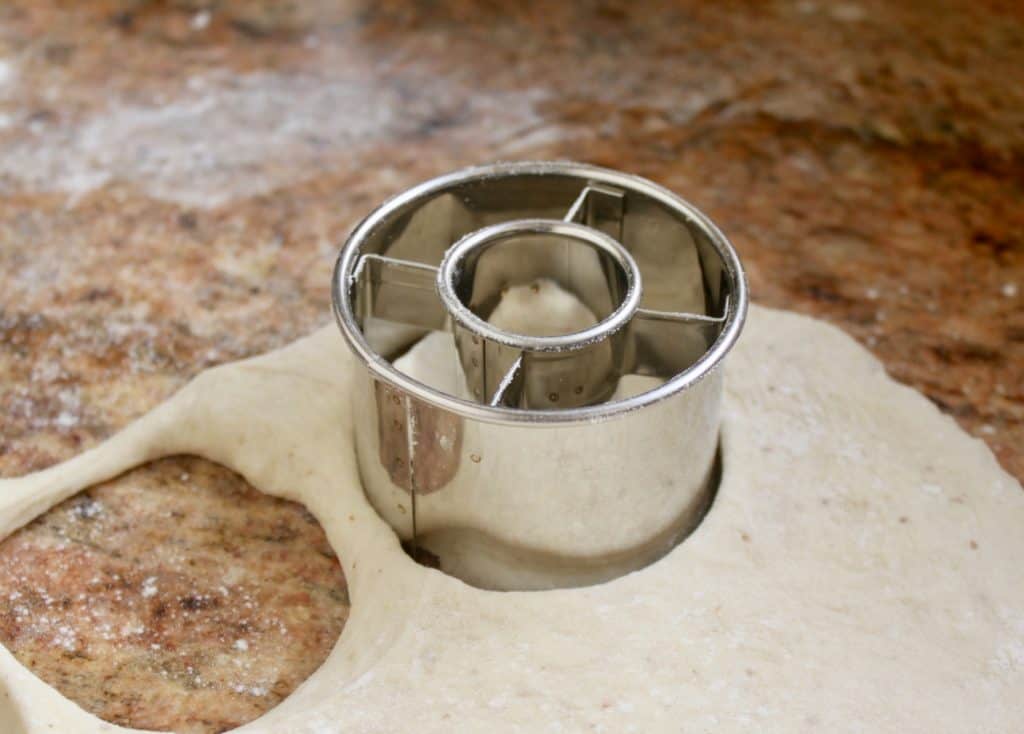
Place the vegan doughnut dough on paper sheets on tray.
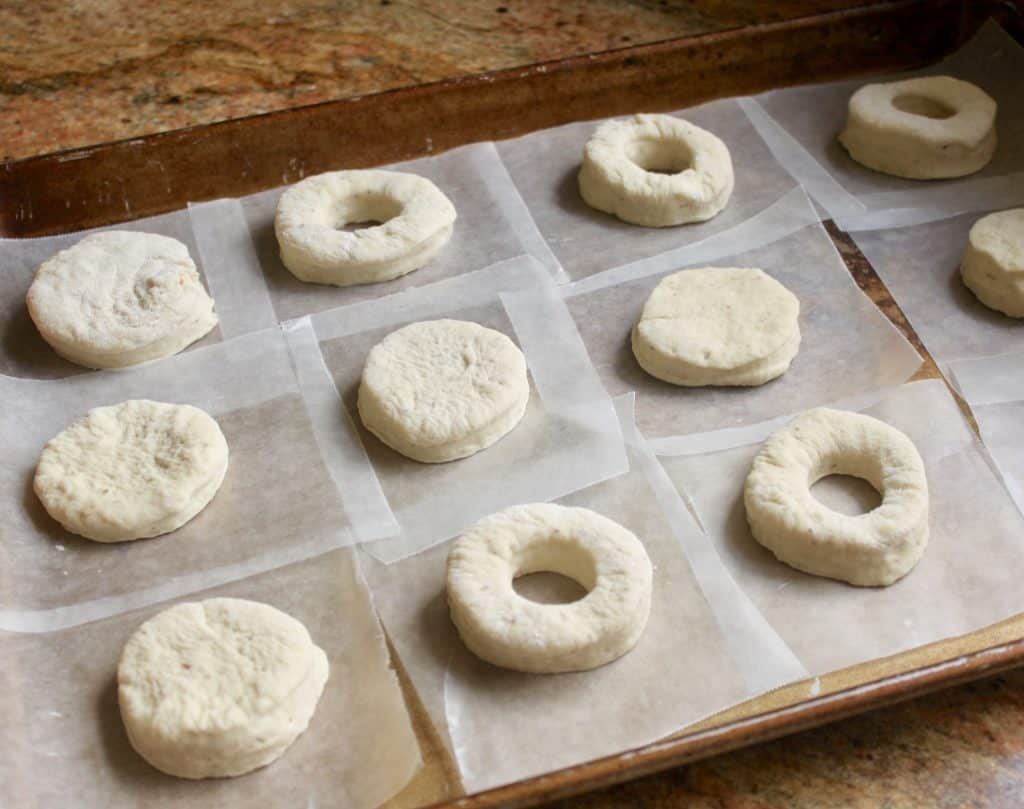
Allow to rise.
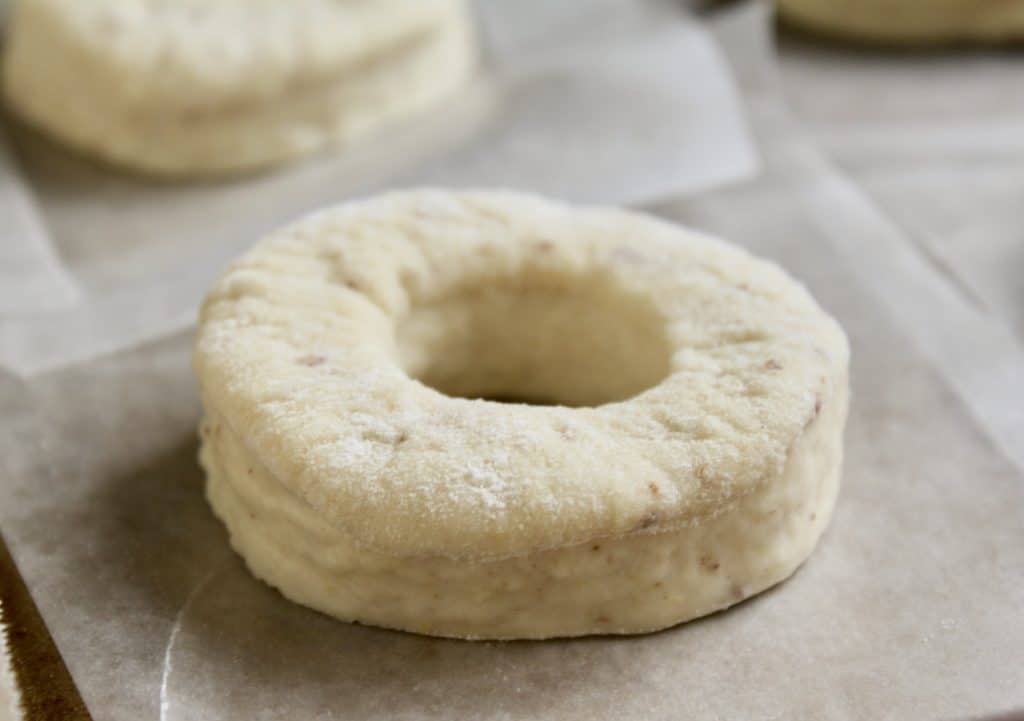
Heat oil and begin frying the vegan doughnuts.
Remove and place on paper towel.
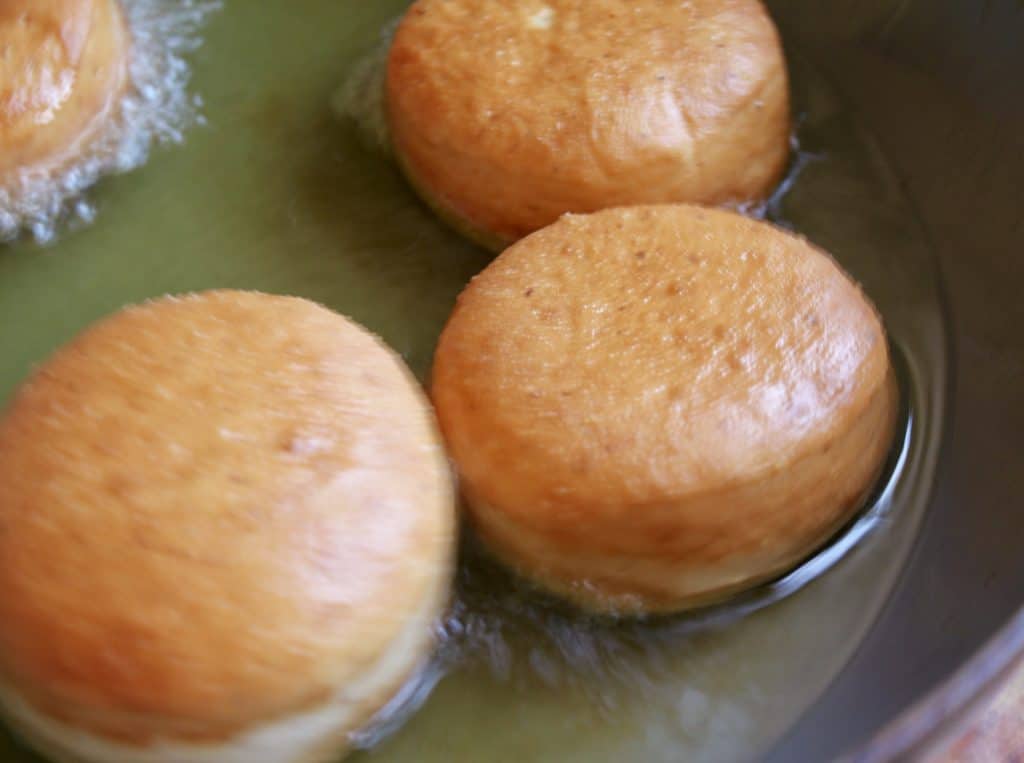
Fill, coat, dip or dust the vegan donuts.
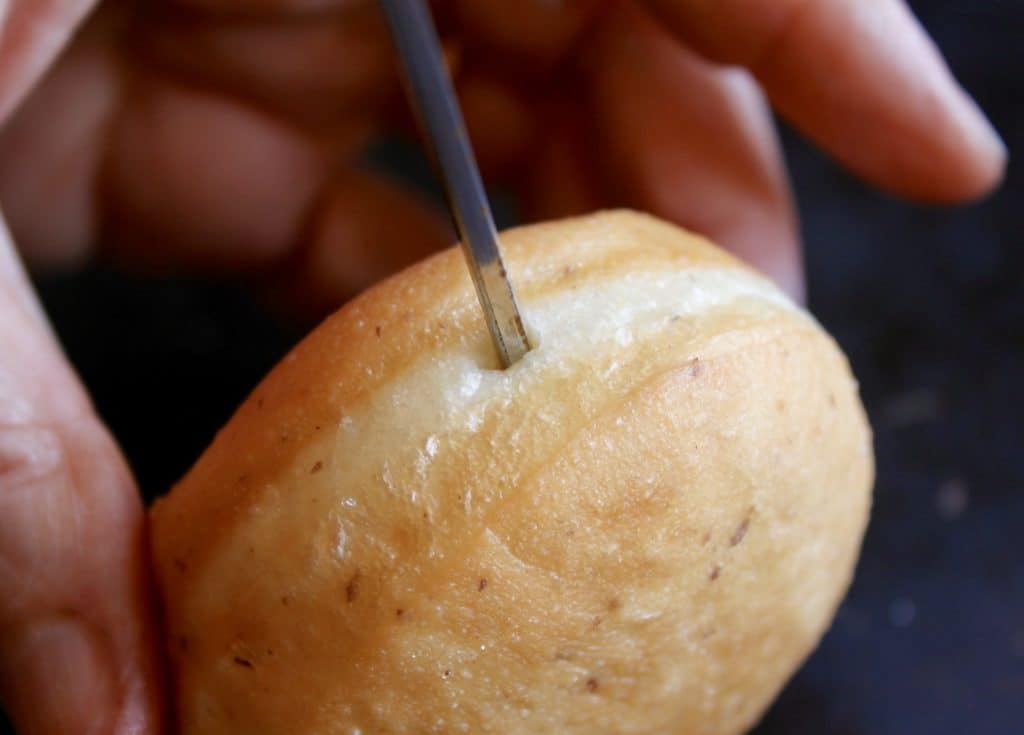
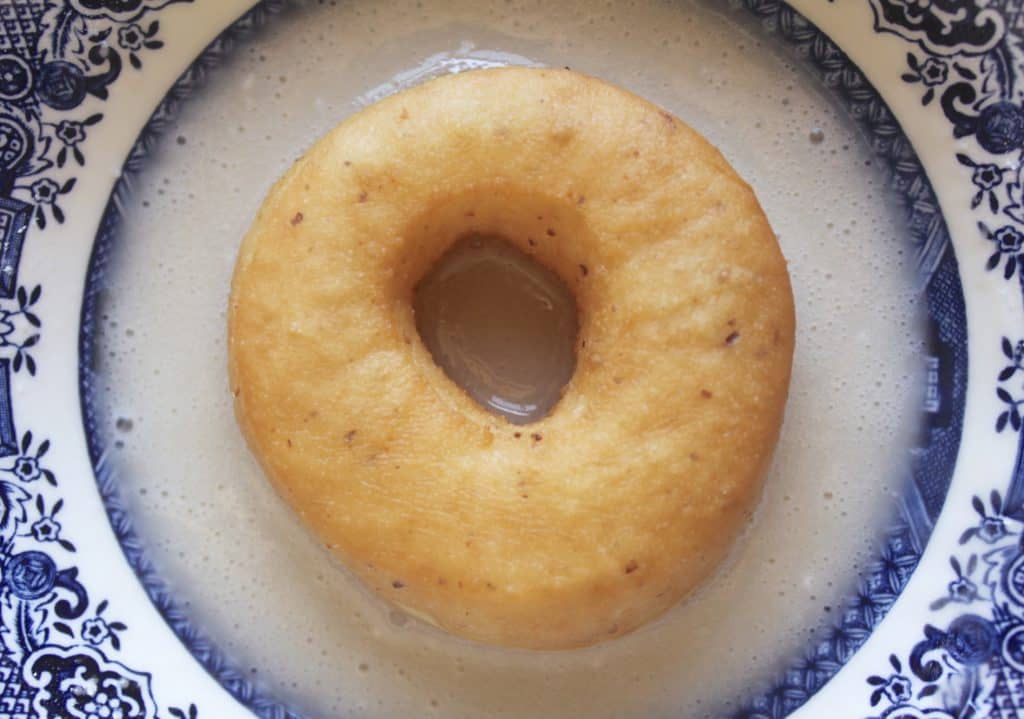
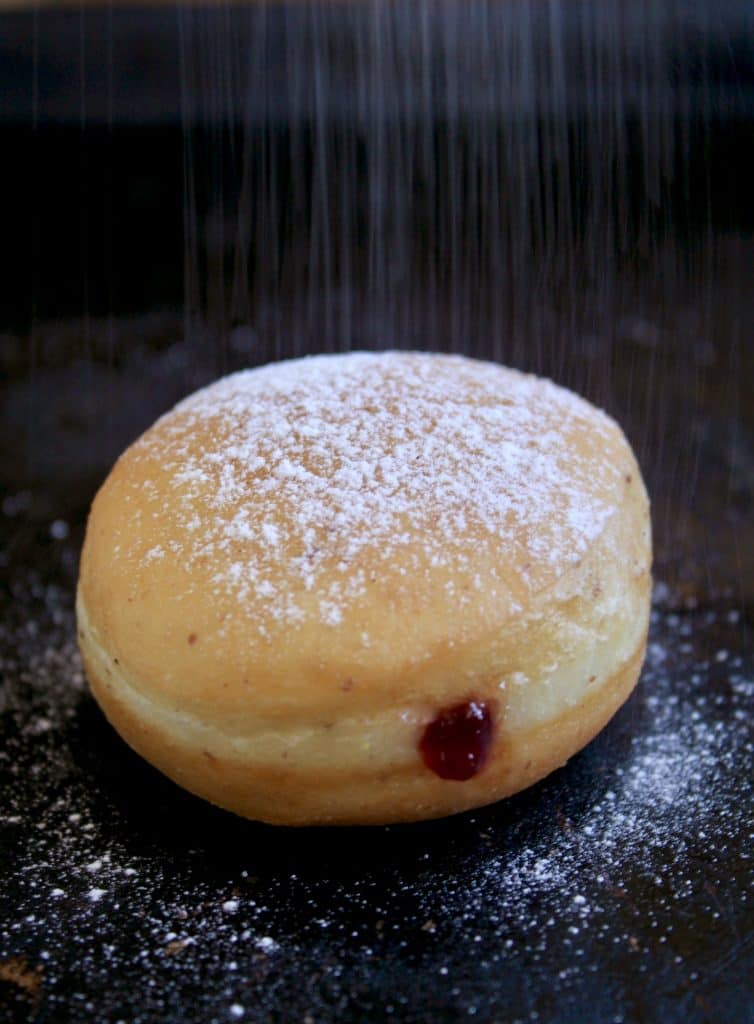
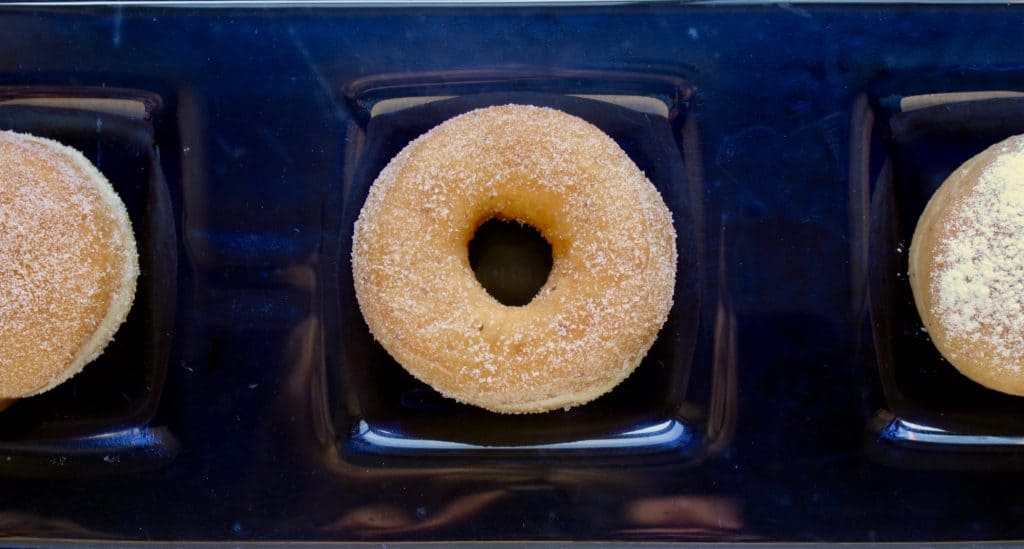
Eat the Vegan Doughnuts!
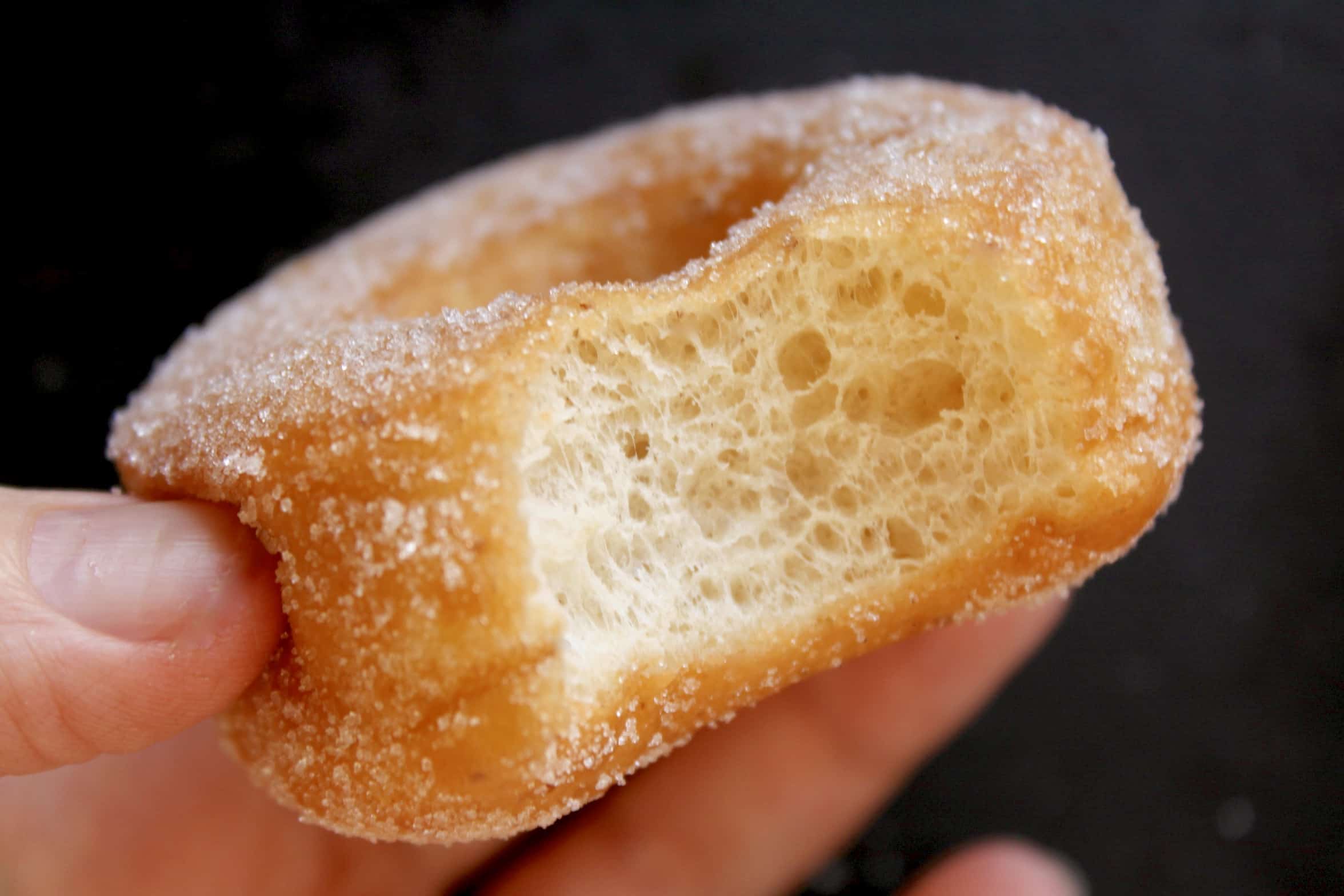
Aaaand another doughnut recipe! Mini Italian pumpkin and orange doughnuts.

Don’t miss another recipe or travel post, sign up for my free subscription.
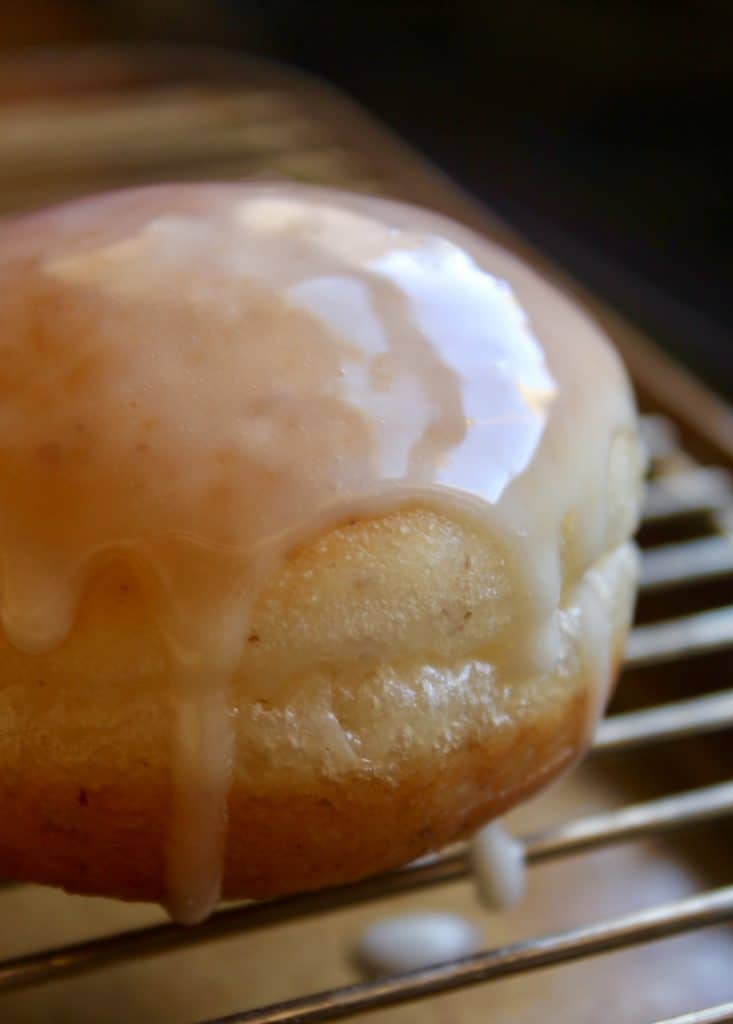
I’m not vegan, but have plenty of vegan recipes for you to peruse. All tried, tested and true (most have been passed down within my Italian family) – just click here VEGAN RECIPES.

Perfect Vegan Doughnuts Made with Yeast (Vegan Donut Recipe)
Ingredients
- 6 Tbsp aquafaba chickpea water
- 2 tsp flaxseed ground
- 6 Tbsp water
- 5 oz coconut milk (in a carton, not can) at room temperature
- 2 oz coconut oil melted
- 16 oz all-purpose flour (or bread flour)
- 2 oz sugar
- 1 tsp salt
- 1 ½ tsp quick-rise yeast or regular dry yeast
- 3 c olive oil (light olive oil - for frying)
Toppings & Coatings (optional)
- powdered sugar
- sugar
- shredded coconut or chopped nuts etc.
- jam or any other vegan filling if desired
Instructions
Make the doughnut dough
- Mix the aquafaba with the ground flaxseed in a small bowl.
FOR BREAD MACHINE
- Place the aquafaba mixture, water, coconut milk, and melted coconut oil in the bread machine pan or stand mixer bowl, then add the dry ingredients, except for the yeast. Make a small indentation in the dry ingredients, then add the yeast. Set the bread machine on the ‘dough’ setting. Remove when dough has doubled in size.
FOR STAND MIXER WITH DOUGH HOOK, OR BY HAND:
- Place the dry ingredients in a bowl. Put 6 tablespoonfuls of lukewarm water in a cup and sprinkle the yeast on top, set aside for about 5 minutes, until the yeast begins to react (you can add a pinch of sugar to help it). Make a well in the center of the dry ingredients, then pour in the yeast mixture, coconut milk, aquafaba mixture, and coconut oil. If using a stand mixer, run with the dough hook until a dough forms then continue for about 5 minutes. By hand, knead for about 10 minutes. Cover and set aside until at least doubled in size.
- Roll out the dough and cut
- Once the dough has risen, place it on a floured surface and knead lightly. Divide it in half, keeping half the dough covered, so it doesn’t form a skin.With a rolling pin, roll out half of the dough to about 1/2″ thickness. (Do not rest the dough.)
- Cut with a round, sharp doughnut cutter (about 3″ diameter). Or else use a sharp cookie cutter, then make the holes with a smaller cookie cutter (about 1″ diameter), saving the holes. I recommend this cutter.
- For jelly filled doughnuts: roll each piece of dough into a smooth ball, and place on parchment or waxed paper pieces and place on a cookie sheet; place in the oven with the other doughnuts and holes.
- Let the cut doughnuts rise
- Place each doughnut on a piece of parchment paper, then place on a cookie sheet. Put the tray in the oven The oven warming step should not be necessary in the summer unless your a/c is very cool.
- Next, boil some water and pour it into a measuring jug or bowl. Place the jug of water in the oven with the tray of doughnuts (this will create steam will keep a skin from forming).
Fry the doughnuts
- Heat the oil to about 350ºF (180º). If you don’t have a thermometer, test the oil with a doughnut hole. If it doesn’t start frying (bubbling) immediately, the oil is too cold, if the hole turns brown right away, the oil is too hot. Adjust the heat accordingly.
- Drop the yeast doughnuts into the hot oil using the paper to carefully lower them into the oil.
- Turn them over as soon as they become golden brown on the underside, then remove and place on a paper towel lined plate once they are ready.
- Decide how you want to finish them (sugar, glaze, filled, or plain)
- When the doughnuts have cooled, roll them in sugar to coat evenly.
- For glazed doughnuts, just put some powdered (confectioner’s) sugar in a bowl and add a little bit of milk or water. Stir and keep adding liquid until you reach a smooth, slightly runny consistency. You want the glaze to run off the doughnuts when you’ve dipped them.
- Dip one and place it on a cooling rack to set. If all the glaze runs off, add more sugar, and if it’s too thick, add more liquid. No measuring needed.
- If you choose to fill the large yeast doughnuts, push a skewer into the center of the doughnut to make a hole. Next, put some room temperature jam, or slightly warmed chocolate hazelnut spread (I’ve gone off Nutella since they’re using tons of palm oil) into a piping bag and pipe the filling into the doughnut.
PLEASE READ NOTES BELOW!
Notes
- I do not specify a time on the dough rising because there are too many factors that will determine the length of time. Which yeast was used (regular or quick rise), if the yeast was fresh or old (older yeast doesn’t work as well, or sometimes not at all), and the temperature of your kitchen.
- parchment paper, cut into about 4″ squares (smaller pieces for doughnut holes)
- large pot, deep fryer or wok
- a sharp doughnut cutter (a reader asked what I recommend, and I like this one as there is no guessing where the center of the doughnut is–perfect doughnuts every time).
- candy/oil thermometer, not necessary, but very helpful if you’re not a deep-frying pro
Nutrition
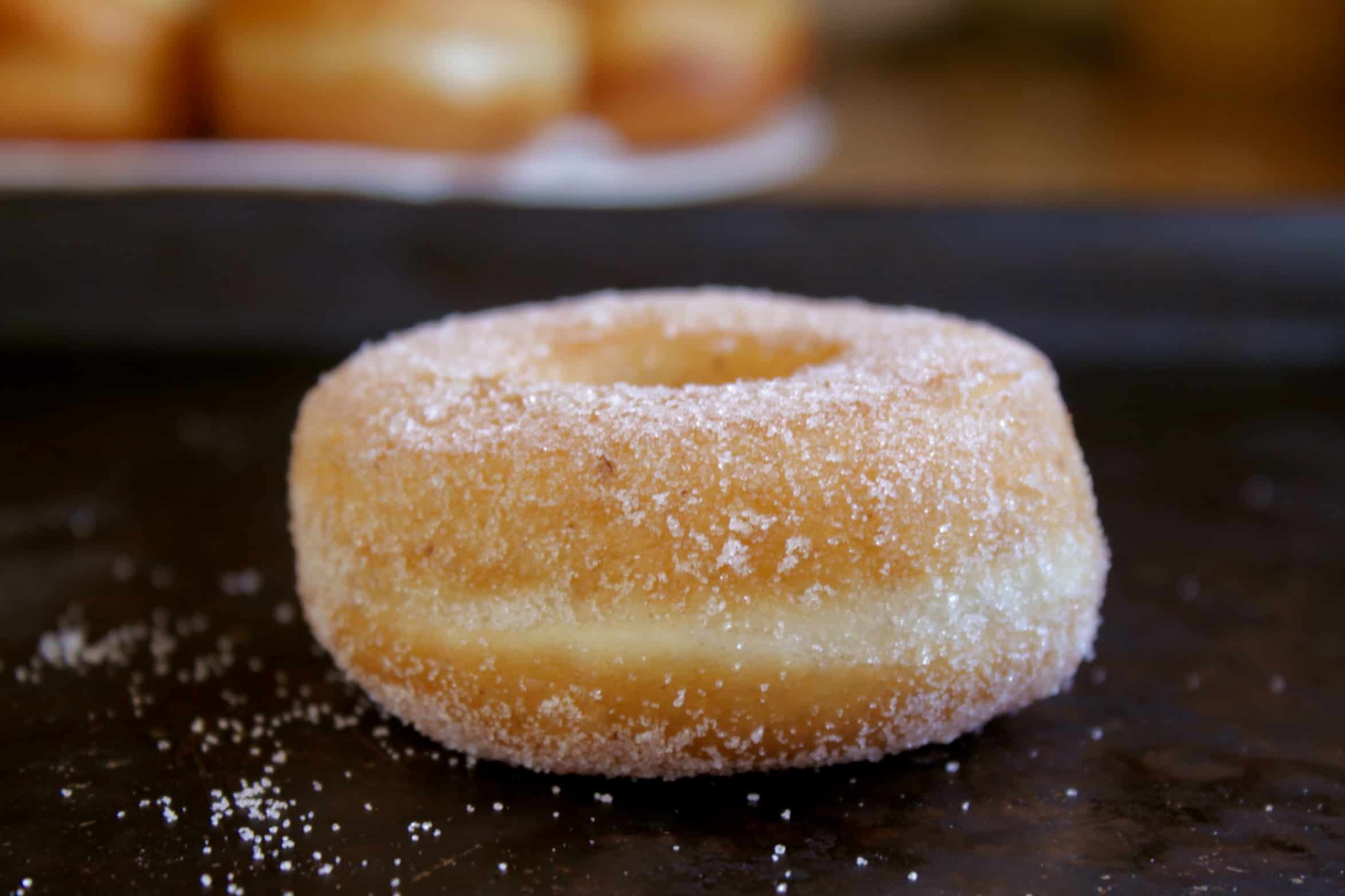
Christina’s Cucina is a participant in the Amazon Services LLC Associate Program, an affiliate advertising program designed to provide a means for sites to earn advertising fees by advertising and linking to Amazon.com.


These donuts are so fluffy and so delicious! I’ve made them a couple times but my dough is very sticky and a bit challenging to work with. I weigh all the dry ingredients and use correct measurements for everything as listed. Any suggestions?
Hi Amy, the dough shouldn’t be that sticky. It may be due to the flour you are using, so I’d suggest adding just one extra tablespoonful of flour and see if it helps. You just don’t wan to add too much or they won’t be light and fluffy. Hope this helps!